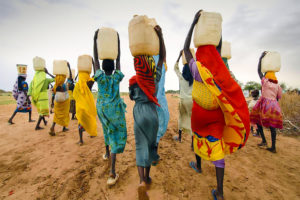Assessing the access and service level of sanitation in public spaces in Latin America and the Caribbean, with focus on a human rights-based approach.
The provision of water and sanitation services was conceived, and primarily focuses, on meeting the demands of households but neglecting the demands in public spaces. Thus, many citizens see their rights overlooked beyond the household, not only because of the limited availability of toilets in public spaces but also because of their inadequate and precarious conditions, difficulty to access or because they are far from meeting the specific needs of a diverse society. Also, homeless people cannot be left out of this plight.
How can we ensure that the provision of toilets in public spaces is inclusive, affordable, safe, and accessible? Can cities become more responsive and friendlier if urban planners, related to public health, public service delivery, regulators and those involved in the provision of services in public spaces, consider the framework and principles of the human rights to water and sanitation?
The Sanitation in Public Spaces project aims to explore these questions by conducting research in several cities in the Latin America and Caribbean region, to learn about the needs of vulnerable groups (namely street workers, homeless people, people with disabilities, transgender people, elderly people, women, and girls) and the challenges of providing toilets in public spaces as a fundamental element of sustainable, accessible, and inclusive cities. Following that, the aim is to propose concrete action for a correct implementation, management, operation, and maintenance of toilets accessible to the public in urban settings.
The specific objectives are:
- to analyse existing normative and legislation with regards to public toilets, within the framework of human rights, evaluating access and service level.
- to assess the current services used by the most vulnerable groups, particularly men and women who are homeless or working informally in the streets, as well as LGBTI persons, the elderly, children, people with disabilities.
- to support cities, develop and implement a road map to ensure the provision of toilets in public spaces as a fundamental element for the achievement of the SDGs and the realization of human rights to water and sanitation.
The study is conducted at multiple levels: national government, municipality, service providers and users. The two case studies selected in Latin America are San José, Costa Rica, and Barranquilla, Colombia, where the situation in the urban centre of the cities will be analysed. In Europe, several cities were reviewed for the identification of best practices, and the city of Edinburgh was selected for an in-depth analysis.










